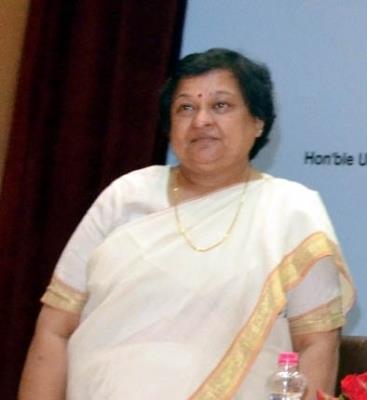(MENAFN- IANS) New Delhi, May 15 (IANS) An Advocacy Manual titled 'Legal Regulation of Abortion in India: Complexities and Challenges' was unveiled by Justice Gita Mittal (Former Chief Justice, High Court of Jammu and Kashmir; former Acting Chief Justice, High Court of Delhi; Chairperson, Broadcasting Content Complaints Council) and by Professor (Dr.) C. Raj Kumar (Founding Vice Chancellor, O.P. Jindal Global University) in the presence of stakeholders and activists from the sexual and reproductive health movement in India.
The Advocacy Manual has been prepared by the Law and Marginalisation Clinic, Centre for Justice, Law and Society (CJLS) at Jindal Global Law School under the supervision of Professor Dipika Jain, Disha Chaudhari, and Natasha Aggarwal as part of the clinical course titled "Reproductive Justice and the Law Clinic" in collaboration with the Center for Reproductive Rights (CRR) Asia, CommonHealth, and Rising Flame.
The Advocacy Manual presents a holistic understanding of the laws governing abortions and highlights unintended legal conflicts and lacunae in implementation.
In her address, Justice Gita Mittal emphasised the need to examine the barriers to abortion access from multidimensional perspectives that account for the experiences of persons with disabilities, adolescents, Dalit, Bahujan and Adivasi persons, and trans persons.
She further stated that: "It is not just law that creates barriers to abortion access. There are other barriers -- stereotypes against single women, no information about their bodies which lead them to seek unsafe abortion, fear of ostracisation by family, insufficient healthcare facilities, failure to ensure confidentiality, fear of prosecution."
Justice Mittal also touched upon the criminalisation of abortion in the Indian Penal Code as well as the fact that "the MTP Act does not center bodily autonomy of pregnant persons." She noted the need to relieve abortion from criminality and adopt a rights-based approach to sexual and reproductive health and rights, including abortion.
In the welcome address, Professor (Dr.) C. Raj Kumar (Founding Vice Chancellor, O.P. Jindal Global University) acknowledged the tremendous efforts and strides in the field of reproductive justice by the Law and Marginalisation Clinic, Center for Reproductive Rights (CRR), CommonHealth, and Rising Flame.
He stated, "Where there are injustices, there is a tendency to feel exasperated, demotivated and a sense of vulnerability. However, the saga of human rights is of hope and not of despair. This manual has been written with that idea and vision."
In her welcome address, Dr Faustina Periera emphasised the Advocacy Manual's value in understanding intersectional barriers to access to abortion in India and as a "blueprint for various other countries in this initiative."
Introducing the Advocacy Manual, Dipika Jain (Professor of Law, Vice Dean, Director, Law and Marginalisation Clinic, Centre for Justice, Law and Society, Jindal Global Law School) underlined the collaborative nature of the Reproductive Justice and the Law Clinic, which was envisaged as a first-of-its-kind clinical course to transform classrooms into spaces of critical discourse and experiential learning.
The Advocacy Manual engages with: (i) the impact of certain legislations on abortion access, such as the MTP Act, the RPWD Act, the POCSO Act, and the PCPNDT Act, (ii) a critique of this legal framework with respect to the failure to protect the autonomy of pregnant persons, and (iii) the exacerbated impact of barriers to abortion access on marginalised persons and groups.
The Advocacy Manual uses case studies to demonstrate the barriers faced by trans, Dalit, Bahujan, Adivasi and Muslim persons, persons with disabilities, and adolescents in accessing abortion services.
Finally, the Advocacy Manual proposes recommendations to the current legal framework on abortion services, including the decriminalisation of abortion under Sections 312 - 318 of the Indian Penal Code and the implementation of a rights-based framework governing access to abortion.
--IANS
san/prw/dpb
MENAFN15052023000231011071ID1106242703
Legal Disclaimer:
MENAFN provides the
information “as is” without warranty of any kind. We do not accept
any responsibility or liability for the accuracy, content, images,
videos, licenses, completeness, legality, or reliability of the information
contained in this article. If you have any complaints or copyright
issues related to this article, kindly contact the provider above.




















Comments
No comment